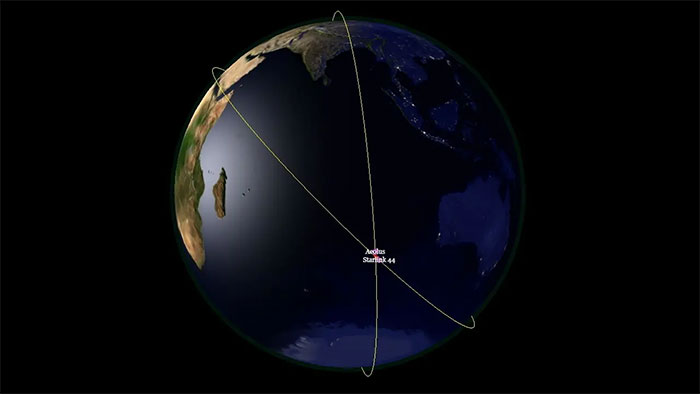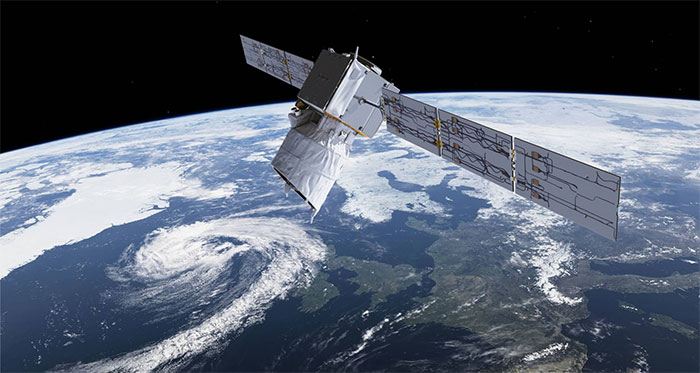SpaceX satellite almost collided with European satellite
The European Space Agency (ESA) set the propulsion on Aeolus satellite, driving it to avoid SpaceX's Starlink 44 satellite on September 2.

Aeolus and Starlink 44 satellites have a collision rate of 1 / 1,000.(Photo: ESA).
Aeolus is a satellite observing the Earth weighing more than 1,300kg, launched into space on August 22, 2018. Starlink 44 is part of a series of 60 Internet satellites launched by SpaceX at the end of May this year. Most Starlink satellites operate at orbit 440-550km. However, Starlink 44 lowered to practice some flight techniques.
The flight paths of the two satellites intersect at an altitude of 320km. The chance of a collision is 1 in 1,000, according to Holger Krag, head of the Space Waste Office at ESA. This is 10 times higher than the danger threshold, requiring engineers to control satellites to avoid collisions. They used a safe way of raising Aeolus high.
This is very rare between active satellites. Typically, they just need to avoid the path of "dead" satellites or debris from previous collisions.

Aeolus satellite operates in orbit.(Photo: ESA).
After escaping from danger, Aeolus returned to the right path. The satellite also communicates with the Earth and sends back scientific data as usual.
It is not feasible for engineers to control such satellites to avoid collisions in the future, as the number of satellites becomes larger and the risk of collision increases. ESA plans to automate this process and use artificial intelligence to help keep satellites out of harm's way.
- Astronomers worry: SpaceX's satellite array can ruin the night sky
- SpaceX successfully landed missiles in California
- Satellite Ecuador collided with Soviet missile fragments
- SpaceX denies Zuma's secret satellite is out of control
- SpaceX successfully launched commercial satellites with reusable boosters
- The launch of the Falcon 9 rocket landing succeeds but SpaceX destroys the secret Zuma satellite
- SpaceX launched the third satellite in just ... 2 weeks
- SpaceX successfully launched 10 Iridium Next satellites into space
- SpaceX won the satellite launch contract of the US Department of Defense
- SpaceX is about to launch missiles carrying over 6 tons of satellites
- SpaceX launches satellite Internet, testing the global Internet broadcasting project
- SpaceX will provide satellite internet worldwide around mid 2020
 Van Allen's belt and evidence that the Apollo 11 mission to the Moon was myth
Van Allen's belt and evidence that the Apollo 11 mission to the Moon was myth The levels of civilization in the universe (Kardashev scale)
The levels of civilization in the universe (Kardashev scale) Today Mars, the sun and the Earth are aligned
Today Mars, the sun and the Earth are aligned The Amazon owner announced a secret plan to build a space base for thousands of people
The Amazon owner announced a secret plan to build a space base for thousands of people